- Home
- Diane Capri
Twisted Justice
Twisted Justice Read online
For Robert
CAST OF PRIMARY CHARACTERS
Judge Wilhelmina Carson
George Carson
General Albert Randall Andrews (Andy)
Deborah Andrews
Roberta Andrews (Robbie)
John Williamson
Donald Andrews
David Andrews
Senator Sheldon Warwick
Victoria Warwick (Tory)
Sheldon Warwick, Jr. (Shelly)
Olivia Holmes
Thomas Holmes
President Charles Benson
Charles Benson, Jr.
Chief Ben Hathaway
State Attorney Michael Drake
Chief Ozgood Livingston Richardson (Oz or CJ)
Margaret Wheaton (secretary)
Kate Austin
Jason Austin
CHAPTER ONE
Tampa, Florida
Thursday 8:50 a.m.
January 20, 2000
THE BULLET THAT KILLED General Andrews was the same one that pierced my heart, although we were thirty miles apart when it happened and no blood soaked my chest. The damage was permanent, if not immediately obvious.
The new millennium was off to a disastrous start.
Thursday morning, two days before Andrews died, held the blessed promise of a return to normalcy. I had thrown myself back into my office routine, but I was entirely preoccupied by televised coverage of the most important national event since the war: Senate confirmation hearings for U.S. Supreme Court nominee, General Albert Randall Andrews.
Once the hearings concluded that morning, I naively assumed, my husband would magically transform into the man I had loved and somehow lost. After seventeen years of marriage, another woman would have been easier for me to deal with than George’s passionate devotion to the greater good, working to defeat the Andrews nomination.
Seated at the battered desk in my hideously decorated chambers in Tampa’s Old Federal Courthouse, I tried to focus on the draft orders that had been prepared by my clerks and appeared on my desk with the regularity of the daily sunrise. I signed the orders, again and again, methodically moving them to my outbox on the front of my desk where my secretary would pick them up.
Like other United States District Court judges here in the Tampa Division of the Middle District of Florida, I had a never-ending, boatload of work that threatened to bury me long before I had a chance to die a natural death. Already, the workload made me feel much older than the thirty-nine years reflected on my driver’s license.
Regardless of what time management methods I tried, I never seemed to get ahead. I rarely glimpsed the scarred surface of the old mahogany desktop I’d inherited from the little Napoleon who’d occupied this office before me.
I read the draft order in front of me: Marital Privilege is a legal term that means one spouse cannot be required to reveal confidential communications from the other spouse. Marital privilege was a concept that didn’t apply to me at the moment because my husband, George, and I weren’t communicating at all. For example, I had no idea where he was that morning. I knew I couldn’t reach him very easily by phone because I had already tried.
George was consumed with General Andrews and his confirmation hearings and I was consumed with desire for the entire process to go straight to hell and leave me and my marriage alone.
Wilhelmina Carson, I wrote, pressing the pen so hard that a hole appeared over the dotted ‘i.’ I placed the executed order on the top of the outgoing pile.
“Not since Clarence Thomas was appointed to the Supreme Court in 1991 has there been such a public display of outrage at a President’s choice,” the television analyst said. “Since General Albert Randall Andrews, formerly Tampa’s highest ranking Army officer, was nominated to join Thomas on the bench, the country has resided in a state of outrage over his offensive political and ideological positions on a variety of issues.”
The hyperbole brought a smile to my lips that didn’t lighten my heart. I found it hard to believe that anyone was taking the Andrews nomination seriously. Andrews was a rogue. To my mind, he was such an unsuitable candidate that he should never have been nominated in the first place.
Andrews was more obstinately opinionated than a cable television talk show host, and twice as vocal about it. There was no way he’d ever do the one thing required by the job: remain impartial and consider each case individually as it was presented to him. Once nominated, Andrews should have been summarily rejected.
But that’s not what happened.
The analyst continued reading from his prepared script. “Today, the crowd outside the Capitol building here in Washington, D.C. is larger than any of the earlier days of the hearings. . . .”
I felt sorry for the protesters. It’s not easy to have the courage of your convictions after standing outside for nine days in January ice showers.
At the beginning of the march, the protesters had been neatly organized, with the right to lifers on the left, the gays and lesbians on the right, and the anti-military group in the center, flowing out to the back. Today, the factions mingled into a single, huddled mass.
Icy rain soaked the homemade signs they carried. Blue magic marker ink ran off onto their heads, giving them an even more defeated look. Many huddled near fires in old barrels to catch a small slice of warmth. Even the commentator shivered as ice water dripped off his umbrella in the cold. I shivered, too, remembering how it felt to be chilled to the bone by bitter January cold only too well. It was a visceral memory that might never be baked out of me here in the Sunshine State.
I glanced out my window and saw clear blue skies, palm trees, and two homeless men across the street wearing short-sleeved T-shirts sharing a cigarette. It so rarely rains here in January that I leave the top down on my car for weeks at a time. The contrast between my world and the world I saw on television couldn’t have been more complete. This, at least, was a fact that cheered me.
In the nation’s capital, despite the horrid weather, the protesters had come and waited and every day their numbers had grown. They chanted, picketed, sang songs.
I shook my head and ran my fingers through my short auburn hair, causing it to stand straight up on top. The futility of their struggle would have persuaded me to quit long before now. I admired their determination. I liked to think I’d had that once.
When I was young and idealistic. Not anymore.
To do what these protesters were doing, what my husband had been doing, required the kind of conviction I no longer possessed. Before I was appointed to the bench, I practiced law long enough to learn that there are always too many sides to every story. I no longer believed in solid black and pristine white, self-evident truths and indisputable wrongs.
In politics, the question has always been “what have you done for me lately?” General Andrews was probably finding that out now. It must have been a hard lesson for a popular war hero to learn.
For almost an hour, the television commentators had rehashed the entire course of the hearings and predictions of the outcome, which ranged from promises of complete victory to devastating loss for both sides. Whether the nominee would be confirmed was alternately feared or cheered, depending on the speaker’s point of view.
My patience had been stretched to the breaking point by the weeks of bickering. I was sick to death of the constant analysis and conjecture. I wanted the matter to end. Confirm Andrews’s nomination or not, but just finish the damn thing.
Just before nine o’clock, the Supreme Court nominee’s limousine pulled up to the curb. The Capitol Hill Police personnel assigned to assure his safety surrounded the car and the passenger door opened.
I glanced up from my work to see the first man step out of the car. It was Andrews’s personal s
ecretary, Craig Hamilton, a pleasant little man almost a foot shorter than me, whom I’d met several times over the past few years.
As he straightened up and rose to his full height of five feet, he looked around at the crowd. For just a second, I thought I saw something like shock on his face as he faced the angry, chanting mob.
I thought again of Andrews. Why he subjected himself and his family to this abuse was a complete mystery to me. To what kind of man was the promise of power so seductive that he would struggle against hostile strangers to achieve it?
Hamilton reached out to accept an opened black umbrella offered by one of the officers standing to his right while I watched, waiting impatiently for the real story to start.
When Craig Hamilton stood to the side to let Andrews, the nominee, out of the car, I glanced down at my work.
I heard a loud, quick pop, pop, pop over the noise of the chanting crowd. I jerked my head up to see Craig Hamilton crumple to the ground. He was quickly surrounded by police officers.
Complete chaos followed instantaneously. My stomach recoiled in horrified impotence as I grabbed the remote control to turn up the volume on the set.
My other hand flew to the phone to call George, but just as quickly withdrew, as if the receiver was hot to the touch. George wouldn’t be answering his cell phone. He’d be on his feet, rushing to help Craig Hamilton in any way possible. I hoped George wasn’t in Washington, D.C. right now, but wherever he was, my anxiety told me, he was involved.
The screaming drew my secretary, Margaret, into my chambers.
“Willa, what’s wrong?” she asked as she hurried over to me.
She put her hand on my shoulder and looked directly into my face. I realized that the screaming that drew her had been my own.
I closed my mouth and patted her hand. I nodded to the television set. Margaret watched with me as we saw falling bodies everywhere. I heard no more shots, but they could have been fired. “Just like Jack Ruby,” Margaret whispered, referring to the man who shot Lee Harvey Oswald, right in front of God and everybody, on television after President John F. Kennedy was assassinated.
Americans have a long history of trying to solve political problems with guns. Presidents Lincoln, King, Ford and Reagan, among others, had all been targets of assassination attempts.
Being younger than Margaret by thirty years, my thoughts jumped to the attempt to assassinate President Ronald Reagan. The thought that sprang, unbidden, to my mind and flew out of my mouth was, “Just like Jim Brady.”
Like Jim Brady, Craig Hamilton was in the way between the killer and his target.
I moved to one of the ugly green client chairs on the front side of my desk, where I’d get a better view of the small screen. Margaret continued to stand. Our gazes were glued to the television set now as the small picture divided into three sections. A commentator was featured in a small box on the top on the screen. Another small box reflected the real time events.
On the rest of the screen, a replay camera panned the front lines of the crowd. Involuntarily, I drew a quick breath when the camera spotted a man with a gun making his way up to the curb toward the waiting limousine.
The instant replay showed Craig Hamilton step out of the car. I watched in appalled fascination as the shooter raised his arms while holding a hunting rifle. The rifle recoiled three times as the shooter pulled off the three shots that hit Hamilton’s chest. Watching felt nothing like viewing a Hollywood movie. This was too vivid, too close to home.
As both a judge and the wife of an influential member of the Republican party, I’m accustomed to seeing people I know on television. But viewing friends and colleagues being shot and trapped in a car by an angry mob was surreal, a familiar scene grotesquely transformed.
When we saw the shooter wrestled to the ground and taken away in handcuffs in a matter of seconds, Margaret said, “Thank God.”
The picture returned to the unfolding events. We watched as Craig Hamilton was quickly placed on a stretcher and moved to a waiting helicopter.
“Please let him be wearing a vest,” I whispered.
General Andrews’s famous temper would make him want to get out of that car and beat the shooter to a bloody pulp. Apparently, his handlers knew better than to let him do that. So he and his wife remained inside the limousine until the Capitol Police reinforcements marched into the street, up to the car and surrounded the passenger doors.
We saw countless replays of the shooting, ostensibly for viewers who’d just tuned in. After a while, the breathlessness I’d felt when Craig Hamilton went down began to recede.
“Will they stop for today?” Margaret asked me about an hour later. “Surely, the hearings can be rescheduled while they have a chance to sort this all out?”
More comments and discussion continued among the various commentators and official spokespeople as they debated the idiocy of continuing before they knew if the shooter had acted alone.
At least once before in the current public memory, the assumption had been made that a lone shooter had killed a president, and speculation about that continued to the present time. Had Oswald acted alone? An overwhelming majority of Americans thought not. We might never know. And no one was anxious to repeat the mistake of rushing to a conclusion too quickly.
I said nothing to Margaret, but I hoped that the hearings would not be rescheduled. These hearings had caused so much disruption in the country and in my life that I wanted them over. Now. Of course, I wanted the matter handled safely and responsibly, but if the hearings were finished, then maybe everyone could go home and calm down.
While we waited for something more to happen, thoughts raced through my head with the speed of light. I could see the general’s wife, Deborah Andrews, in the back of the limousine with him. She would be terrified. Deborah was a gentle soul, not meant for the line of fire. Long before now, the challenge of living with her husband had driven her to alcoholism and back.
When Deborah chose to marry the man she called Andy, she couldn’t have known she’d be subjected to the glare of media scrutiny, pummeled by questions, even shot at. What would she do to save her marriage when forces beyond her control seemed determined to wrest happiness from her grasp?
I thought about my own marriage and knew I’d be no better suited as a human target than Deborah was. Even though we weren’t communicating very well at the moment, I knew George would never put me in any situation that might hurt me, physically or otherwise.
George considered it one of his missions in life to take care of me. While his protectiveness was stifling sometimes, he tried not to smother me with it.
“George is perfect,” all my friends tell me. Maybe. George was a banker when I married him. Now he owns and operates Tampa’s finest five-star restaurant, handles our investments, and plays the very dangerous game of national and local politics. All our friends love George because of his courtly ways and outgoing personality, but they haven’t had to try to live with him lately.
Considering the same question I’d posed about Deborah, I wondered what I would do to save my marriage if forces beyond my control snatched George away, and I pushed the question behind a door in my mind, and closed the door firmly, hiding the thought from view.
Instead, I focused on what Deborah Andrews must be feeling right now. Was she thinking about the privileges of marriage as she sat in the back of that limousine, waiting to hear whether she’d be marched through the cold rain into the Capitol building to sit by her husband as he faced his accusers under the hot television lights?
The Deborah Andrews I’d known might have coveted marriage, but would never desire the role she was now playing. All the country loved a war hero, but they didn’t have to try to live with him.
A good marriage improved a woman’s life in every way.
But a bad marriage was too often lethal.
CHAPTER TWO
Tampa, Florida
Thursday 1:00 p.m.
January 20, 2000
THE MORNING CREPT PAST, events unfolding too slowly. I left the television’s sound muted, while Margaret and I waited by returning to work, although I checked from time to time for an update on Craig Hamilton’s condition.
Except for a couple of telephone calls which I successfully ignored from the Chief Judge, the man we call “CJ” and who is the bane of my professional existence, my office was curiously quiet. I was able to make good progress on my orders. The stack in my outbox grew steadily. Margaret provided a tuna sandwich on white with iced tea for me, so I worked straight through lunch, marking time.
About 2:30 in the afternoon, Margaret, who’d been listening to the radio at her desk, came in and turned the volume up on the television set.
“After several hours of negotiation, the local authorities have agreed to allow the Senate confirmation hearing to resume,” the analyst repeated.
Awash with ambivalence, I didn’t know whether to rejoice or curse. The decision seemed foolhardy to me. The general might still be in danger. Why proceed now? On the other hand, I’d been wishing for the end of these hearings and I wanted them to finish. I was willing to take some risks to make that happen, and apparently, so was General Andrews. I put down my pen and gave my full attention to the news.
A dreadful déjà vu feeling overcame me as I watched General Andrews’s limousine arrive again. If anything went wrong now, if the shooter hadn’t acted alone I couldn’t finish the thought, even knowing that my tension was far less than the stretched-tight nerves those on the scene must possess.
The analyst continued to whisper. “An almost invisible General and Mrs. Andrews are being hustled out into a thick corridor formed by uniformed police officers holding open, black umbrellas against the pelting sleet.”
The protective parallel column of policemen resembled a human caterpillar as it slithered up the Capitol building steps and slipped inside.
The cameras picked up inside the Senate, showing us the Judiciary Committee already seated befitting their ideologies, Democrats on the left, Republicans on the right. The room must have been heated to boiling by hot lights and hot tempers. I could almost feel the electricity in the large room. I peeled off my sweater and tried to get more comfortable.

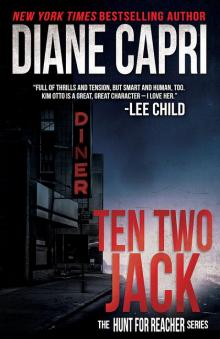 Ten Two Jack
Ten Two Jack Room with a Clue: A Park Hotel Mystery (The Park Hotel Mysteries Book 3)
Room with a Clue: A Park Hotel Mystery (The Park Hotel Mysteries Book 3)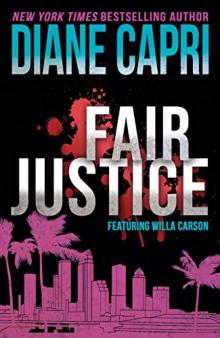 Fair Justice
Fair Justice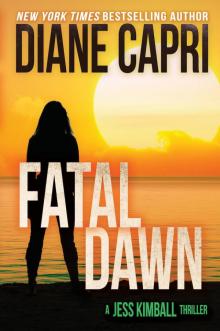 Fatal Dawn
Fatal Dawn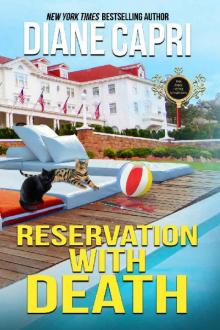 Reservation with Death
Reservation with Death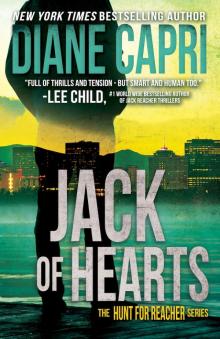 Jack of Hearts
Jack of Hearts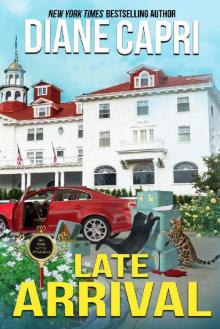 Late Arrival: A Park Hotel Mystery (The Park Hotel Mysteries Book 4)
Late Arrival: A Park Hotel Mystery (The Park Hotel Mysteries Book 4)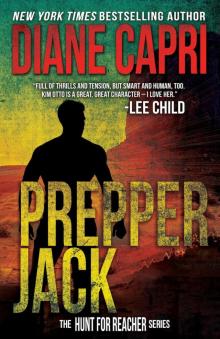 Prepper Jack
Prepper Jack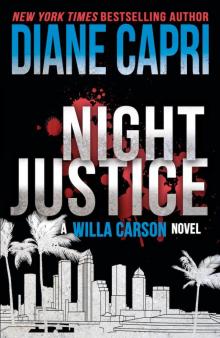 Night Justice
Night Justice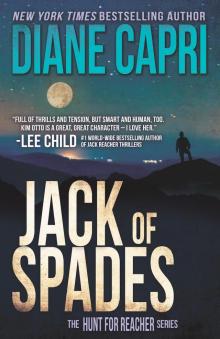 Jack of Spades
Jack of Spades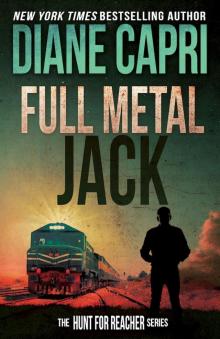 Full Metal Jack
Full Metal Jack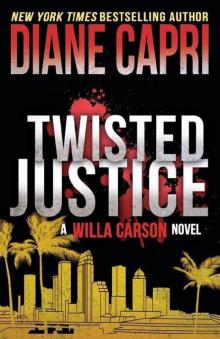 Twisted Justice
Twisted Justice Early Check Out
Early Check Out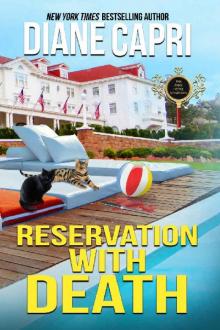 Reservation with Death: A Park Hotel Mystery (The Park Hotel Mysteries Book 1)
Reservation with Death: A Park Hotel Mystery (The Park Hotel Mysteries Book 1)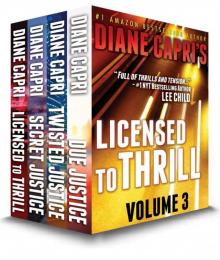 Licensed to Thrill: Volume 3
Licensed to Thrill: Volume 3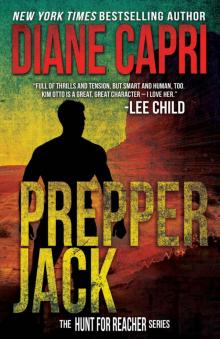 Prepper Jack: Hunting Lee Child's Jack Reacher (The Hunt For Jack Reacher Series Book 12)
Prepper Jack: Hunting Lee Child's Jack Reacher (The Hunt For Jack Reacher Series Book 12)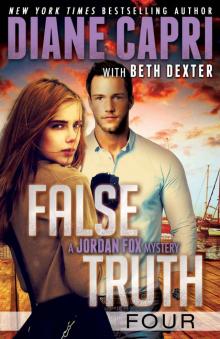 False Truth 4 (Jordan Fox Mysteries)
False Truth 4 (Jordan Fox Mysteries)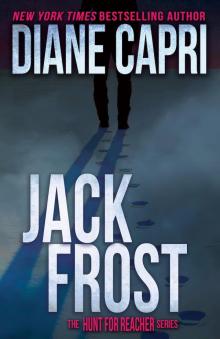 Jack Frost
Jack Frost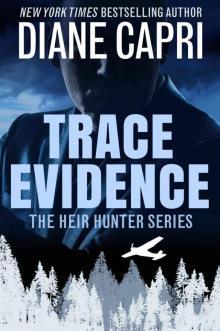 Trace Evidence (The Heir Hunter Book 2)
Trace Evidence (The Heir Hunter Book 2)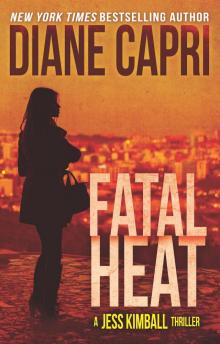 Fatal Heat
Fatal Heat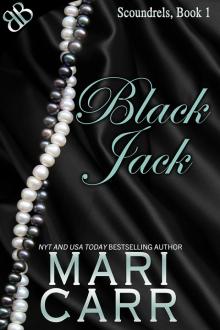 Black Jack
Black Jack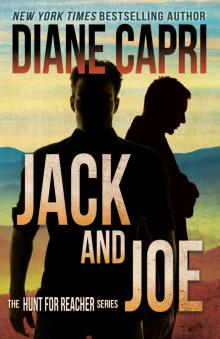 Jack and Joe
Jack and Joe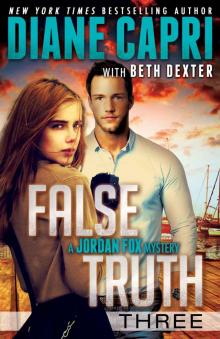 False Truth 3 (Jordan Fox Mysteries)
False Truth 3 (Jordan Fox Mysteries)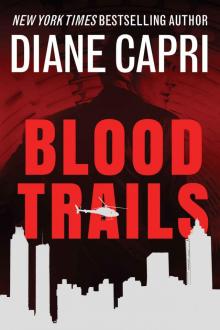 Blood Trails
Blood Trails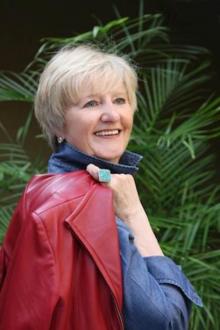 Don't Know Jack
Don't Know Jack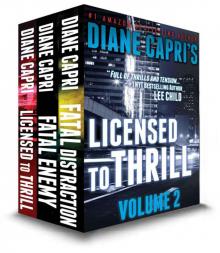 Licensed to Thrill: Volume 2
Licensed to Thrill: Volume 2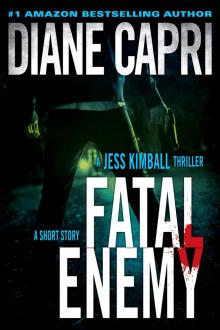 Fatal Enemy
Fatal Enemy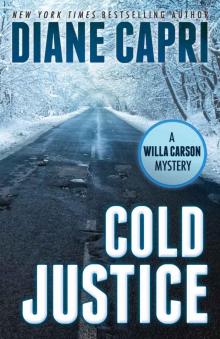 Cold Justice: A Judge Willa Carson Mystery (The Hunt for Justice)
Cold Justice: A Judge Willa Carson Mystery (The Hunt for Justice)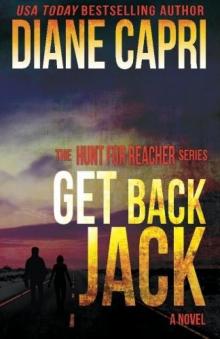 Get Back Jack
Get Back Jack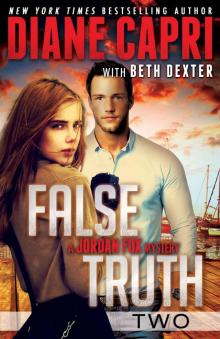 False Truth 2 (Jordan Fox Mysteries Series)
False Truth 2 (Jordan Fox Mysteries Series)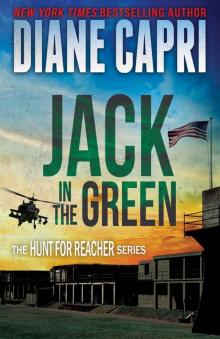 Jack in the Green
Jack in the Green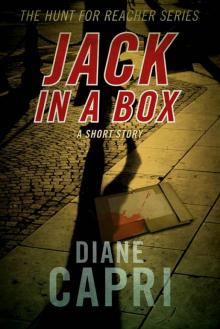 Jack In A Box
Jack In A Box![[Jess Kimball 01.0 - 02.0] Fatal Starts Read online](http://i1.bookreadfree.com/i1/04/01/jess_kimball_01_0_-_02_0_fatal_starts_preview.jpg) [Jess Kimball 01.0 - 02.0] Fatal Starts
[Jess Kimball 01.0 - 02.0] Fatal Starts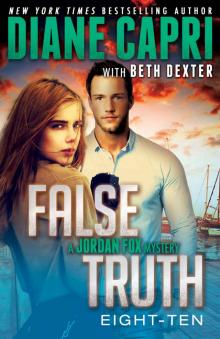 False Truth 8-10: 3 Action-Packed Romantic Detective Mystery Thrillers To Keep You Up All Night (Jordan Fox Mysteries Series)
False Truth 8-10: 3 Action-Packed Romantic Detective Mystery Thrillers To Keep You Up All Night (Jordan Fox Mysteries Series)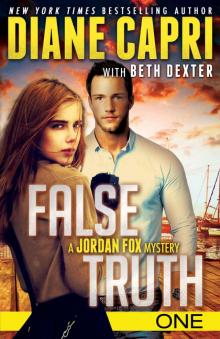 False Truth 1 (Jordan Fox Mysteries)
False Truth 1 (Jordan Fox Mysteries)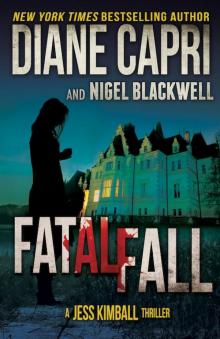 Fatal Fall
Fatal Fall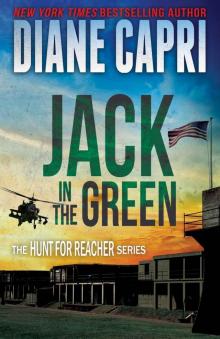 Jack in the Green (The Hunt for Jack Reacher Series)
Jack in the Green (The Hunt for Jack Reacher Series)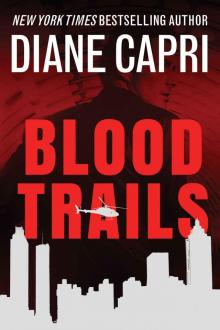 Blood Trails (The Heir Hunter Book 1)
Blood Trails (The Heir Hunter Book 1) Hit the Road Jack
Hit the Road Jack Jack and Kill (Hunt For Reacher (Short Story #2))
Jack and Kill (Hunt For Reacher (Short Story #2))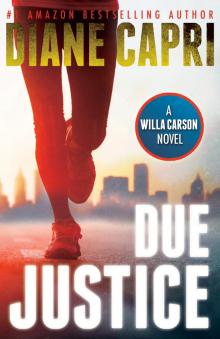 Due Justice
Due Justice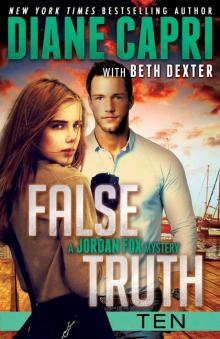 False Truth 10 (Jordan Fox Mysteries Series)
False Truth 10 (Jordan Fox Mysteries Series) Florida Is Murder (Due Justice and Surface Tension Mystery Double Feature) (Florida Mystery Double Feature)
Florida Is Murder (Due Justice and Surface Tension Mystery Double Feature) (Florida Mystery Double Feature)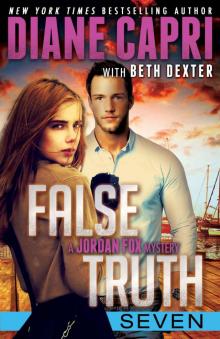 False Truth 7 (Jordan Fox Mysteries)
False Truth 7 (Jordan Fox Mysteries)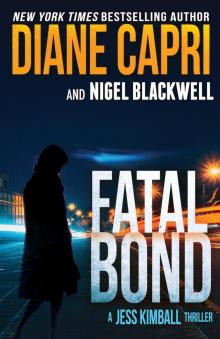 Fatal Bond
Fatal Bond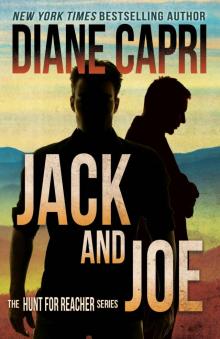 Jack and Joe: Hunt for Jack Reacher Series (The Hunt for Jack Reacher Series Book 6)
Jack and Joe: Hunt for Jack Reacher Series (The Hunt for Jack Reacher Series Book 6)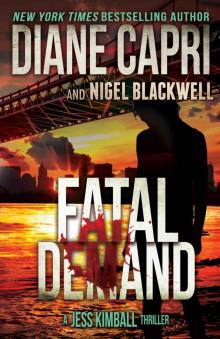 Fatal Demand: A Jess Kimball Thriller
Fatal Demand: A Jess Kimball Thriller![[Jordan Fox 01.0 - 04.0] False Truth Read online](http://i1.bookreadfree.com/i2/04/08/jordan_fox_01_0_-_04_0_false_truth_preview.jpg) [Jordan Fox 01.0 - 04.0] False Truth
[Jordan Fox 01.0 - 04.0] False Truth False Truth 6 (Jordan Fox Mysteries)
False Truth 6 (Jordan Fox Mysteries)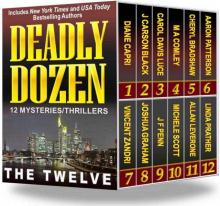 Deadly Dozen: 12 Mysteries/Thrillers
Deadly Dozen: 12 Mysteries/Thrillers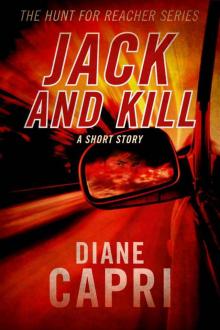 Jack and Kill
Jack and Kill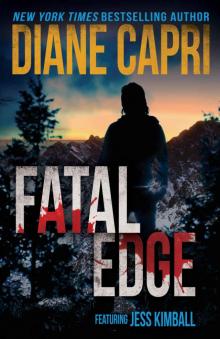 Fatal Edge: A Jess Kimball Thriller (The Jess Kimball Thrillers Series Book 6)
Fatal Edge: A Jess Kimball Thriller (The Jess Kimball Thrillers Series Book 6)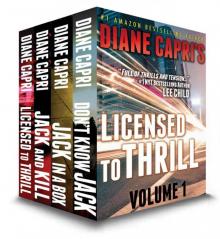 Licensed to Thrill: Volume 1
Licensed to Thrill: Volume 1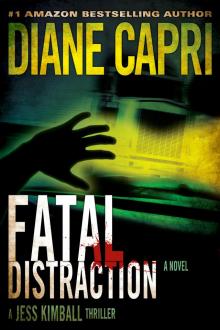 Fatal Distraction
Fatal Distraction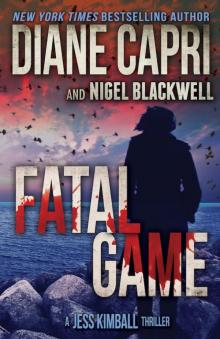 Fatal Game
Fatal Game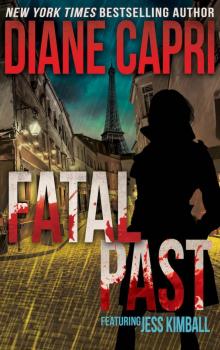 Fatal Past: A Jess Kimball Thriller
Fatal Past: A Jess Kimball Thriller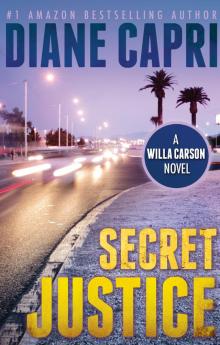 Secret Justice
Secret Justice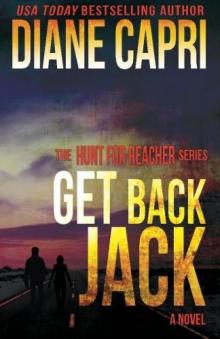 Get Back Jack (The Hunt for Jack Reacher 4)
Get Back Jack (The Hunt for Jack Reacher 4)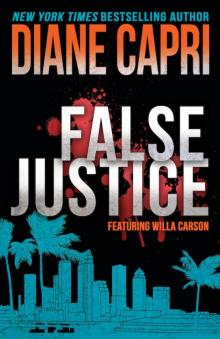 False Justice
False Justice